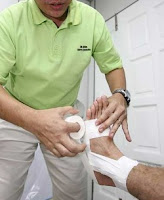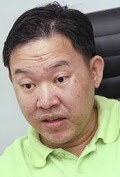
Patients are advised to diagnose their chronic knee pain early so that they may benefit from early intervention measures especially if they have osteoarthritis. However, the patient should always be assessed with the need to maintain a healthy lifestyle to prevent worsening of other medical conditions e.g. cardiovascular disease, diabetes and obesity.
Some of the early treatment options often offered to patients are:-
1. Individualised exercise programs and weight management
2. Electrotherapy
3. Daily Glucosamine Sulphate supplementation
4. Pain medication (under doctor's supervision)
5. Hyaluronic acid injection (3 - 5 weekly doses)
If the patient works closely with the treating physician and physiotherapist, such treatment would result in a better outcome.







